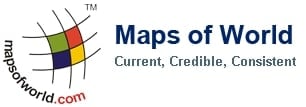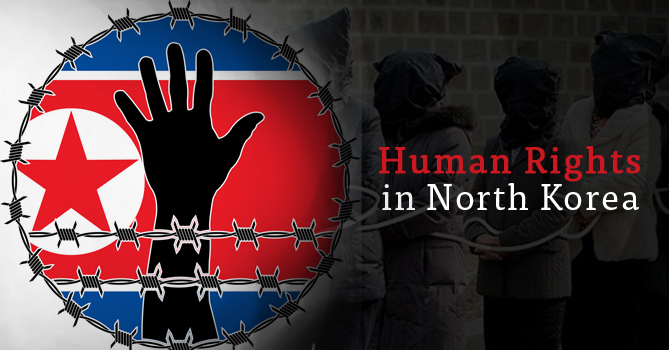Otto Warmbier is the new face of Human rights violations in Korea. The 21-year-old student from the University of Virginia was sentenced by the North Korean regime to 15 years of hard labor “for crimes against the state.” Warmbier was on a five-day tour to North Korea when he was arrested by the state for stealing a Kim Jong- il poster from a hotel. The poster, according to Warmbier, was requested by a member of his church group. The Korean leaders are accorded a divine status in state propaganda and hence, their posters and images are held sacred. The phrase ‘Kim Jong-il patriotism’ was used to glorify the late leader after his death in 2011. However, Warmbier’s is not a standalone case in the history of North Korea. The country is notorious for detaining American citizens and using them as political pawns for extracting high profile visits from the US in order to secure their release.
The State of Social and Political Rights in North Korea
The arrests of foreigners under the country’s arbitrary laws also give a glimpse into the larger issue of human rights violations taking place within the borders. Human rights abuses in North Korea are at an unprecedented level to an extent that a 2014 report of the UN commission found that such abuses in the country were ‘without parallel in the contemporary world.’ The abuses include extermination, murder, enslavement, torture, imprisonment, rape, forced abortions, and other sexual violence.
North Korea’s infamous prison camps, known as Kwan-li-so (Penal-labor colony), are home to political opponents of the government. These camps operate in a secretive manner and dole out violent punishments to its prisoners which include torture, abuse, starvation, and forced labor. The state uses coercion and legalized violence to silence any form of dissent. The report, which compared human rights abuses under Kim Jong-Un to those under the Nazi regime, claimed that the oppressive North Korean regime had left no space for free thought. Their society was bereft of civil society, independent media, and religious freedom.
The citizens face penalties even for possessing videos of foreign TV programs and movies or communicating with persons outside the country. Collective punishments for ‘anti-state offences’ are used very frequently by the state which includes arbitrary detention of hundreds of people including children.
The Human Rights Abuses
The commission of Inquiry established by the UNHRC had interviewed around 80 witnesses and 240 others who gave details of the horrific abuses committed in the prison camps. Around 200,000 people are being held in the camps who are subjected to torture of the worst kind. The prisoners are usually victims of forced disappearance whereby the families are not informed of their whereabouts. They are usually sent to the camps without a charge. A legal trial is completely far-fetched. Prisoners, including children, are beaten to death.
One interviewee claimed having witnessed the burning of bodies of those who had been starved to death and the remains were later used as fertilizer. Another elaborated upon the story of a woman prisoner forced to drown her newborn child because it was suspected of being born to a Chinese father and therefore violated the norms of ‘racial purity’. Prison rapes are a common story where the inmates are repeatedly raped by prison guards. In one such incident, where a woman became pregnant and gave birth, the prison officials cooked her baby and fed it to their dogs.
In other cases, forced abortions are a daily occurrence and sometimes chemicals, beatings or surgeries without anesthesia are used to abort babies. The attacks by prison guards are said to be a routine affair, where the women are coerced into sexual violence in exchange of food and aid. Women, who become pregnant, are often murdered. The narrative paints a horrific picture of sexual violence being used as a tool for ethnic cleansing. North Korea has also criminalized leaving the country without state permission. This makes every refuge and asylum seeker from North Korea a criminal in the country. Kim Jong-Un’s regime has worked systematically to stop illegal crossing over by its citizens into China. China, on the other hand, categorizes all North Korean immigrants as illegal economic migrants and despite its ratification of Refugee convention of 1951 and 1967, China continues to send them back.
Steps taken by the global community
On December 10, 2015, several member countries on the UNGA demanded a debate on referring the North Korea to the International Criminal Court. A week later, on December 17, 2015, 119 countries passed a resolution under the UNGA condemning the “long-standing and ongoing systematic, widespread and gross violations of human rights” in North Korea. The resolution was passed with 119 votes to 19 with 48 abstentions. The UNHRC session of 2016, which has been boycotted by North Korea, is yet to consider the report by the UN human rights office’s reporter Marzuki Darusman on North Korea, in which he warned that Kim and his officials could be held accountable for any crimes they are found to have committed.
Any resolution from the UN will have to be coupled with strong resolutions imposed on the state by individual member countries from across the world. The US, for instance, still has to impose any sanction on North Korea for its human rights violations and despite its North Korea Human Rights Act (NKHRA 2004), only a small number of asylum seekers have approached the country. Given the disclosures of the COI report on human right abuses in North Korea, the world can no longer be a mute spectator to happenings in the country. It becomes imperative for the global community to take steps in order to ensure better lives for the citizens of North Korea.
Read More:
- Facts about Bernie Sanders you should know
- Fate of Julian Assange Hangs in Balance
- Most powerful people of the world
- US Presidential Election 2016 Facts
- Taiwan elects first female President
- China’s One-Belt-One-Road (OBOR) initiative
- North Korea tests nuclear weapon
- Can Russia Become a Superpower?
- Who will be the next U.S. President?
- Democracies Around the World

